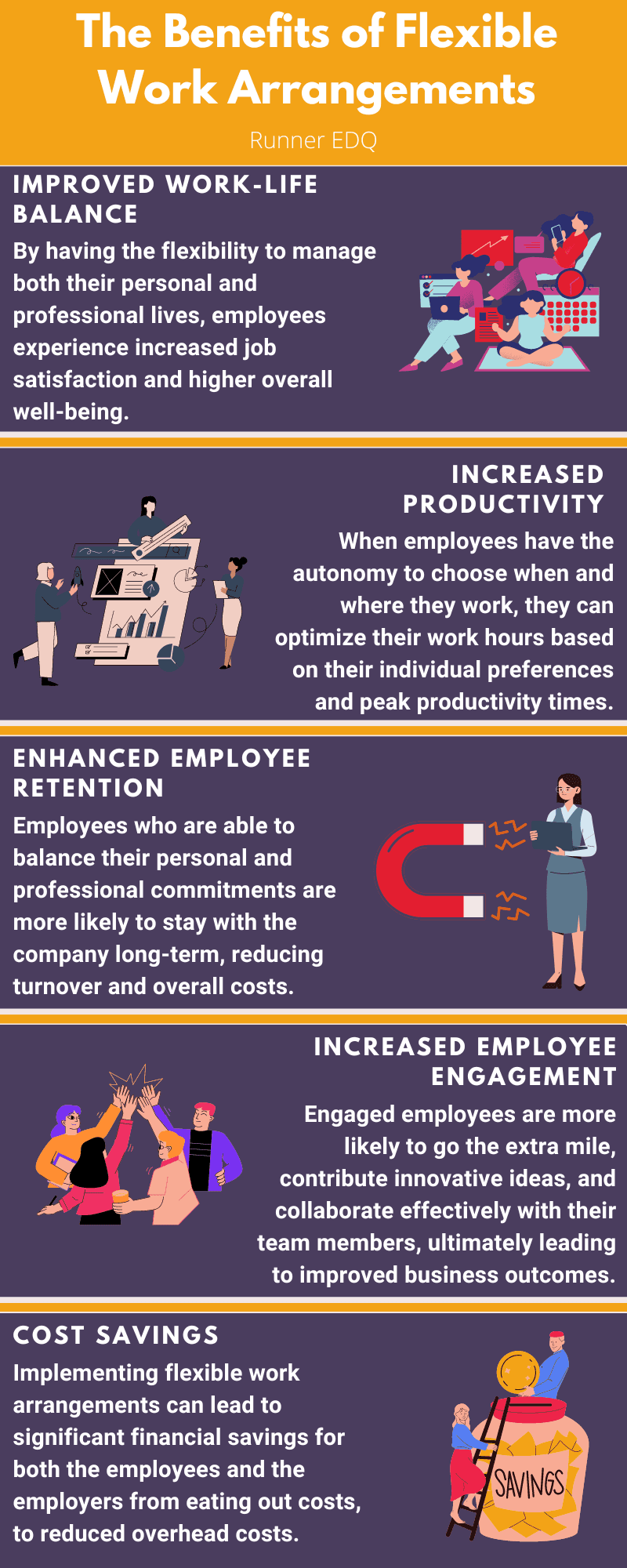Embrace Flexibility In Your Organization
2 MINUTE READ
Gone are the days when the traditional 9-to-5 office schedule was the only option. Today, organizations are recognizing the numerous benefits that flexible work arrangements can bring to their workforce and overall productivity. Let's explore some of the advantages of embracing flexibility in the workplace.
Improved Work-Life Balance
One of the primary benefits of flexible work arrangements is the ability for employees to achieve a better work-life balance. Flexible schedules allow individuals to adjust their working hours to accommodate personal responsibilities, such as childcare, caregiving, or pursuing hobbies. By having the flexibility to manage both their personal and professional lives, employees experience reduced stress levels, increased job satisfaction, and higher overall well-being.
Increased Productivity
Contrary to common misconceptions, flexible work arrangements have been found to enhance employee productivity. When employees have the autonomy to choose when and where they work, they can optimize their work hours based on their individual preferences and peak productivity times. This flexibility helps employees focus on their tasks, reduces distractions, and boosts their efficiency. Additionally, flexible work arrangements eliminate or minimize the time and energy spent on commuting, leading to more productive work hours
Enhanced Employee Retention
Offering flexible work arrangements is an effective strategy for attracting and retaining top talent. In today's competitive job market, professionals are actively seeking workplaces that provide work-life balance and flexibility. By providing these options, organizations create an attractive work environment that appeals to a broader pool of candidates. Moreover, employees who have the freedom to balance their personal and professional commitments are more likely to stay with the company long-term, reducing turnover and the associated costs.
Increased Employee Engagement
Flexibility in work arrangements fosters a sense of trust and autonomy among employees, which contributes to higher levels of engagement. When employees feel trusted to manage their own schedules and work remotely, they tend to take ownership of their tasks and demonstrate a higher commitment to achieving their goals. Engaged employees are more likely to go the extra mile, contribute innovative ideas, and collaborate effectively with their team members, ultimately leading to improved business outcomes.
Cost Savings
Flexible work arrangements can result in cost savings for both employees and employers. For employees, remote work or flexible hours reduce transportation expenses, eating out costs, and other expenses associated with commuting. On the other hand, employers can benefit from reduced overhead costs, such as office space, utilities, and equipment. Implementing flexible work arrangements can lead to significant financial savings for both parties involved.
The Role That Clean Employee Data Plays in Flexible Work Environments
As organizations embrace flexible work arrangements, it becomes crucial to maintain clean and high-quality employee data. This is particularly important when it comes to contacting employees, especially those who work remotely. Accurate employee data ensures that employers have the correct contact information and can reach out to employees promptly when needed. It allows for effective communication, coordination, and collaboration regardless of the employees' physical location. By utilizing reliable data management solutions, such as RunnerEDQ's products and services, organizations can ensure they have accurate and up-to-date employee contact information, enabling seamless communication and smooth operations.







